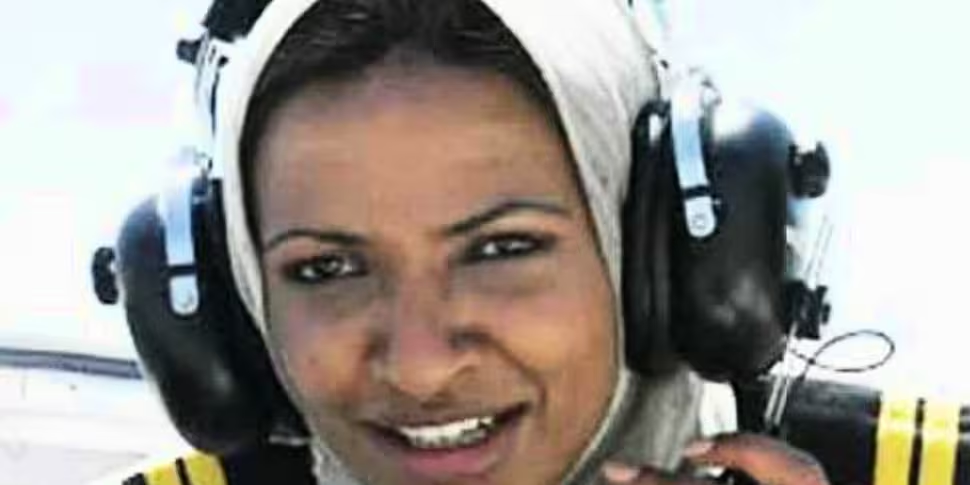Earlier this month Hanadi Al-Hindi became the first woman to be issued a license to fly planes in Saudi Arabia. The 35-year-old, who has flown commercial airplanes since obtaining a license from the Academy of Aviation in Jordan in 2005, will fly planes for the Kingdom Holding Company, owned by prince Alwaleed Bin Talal. Al Hindi, whether she wanted it or not, has become the latest beacon of what appears to be a changing attitude towards women in Saudi Arabia.
This revolution, if we can dare to call it that, is being led by women within the country itself who are employing social media to turn their once private frustrations into peer discussion and most importantly to organise. The Arab Spring has undoubtedly done its bit and international pressure has also ramped up; most notably since the shocking deaths in 2002 of fifteen girls who were stopped from escaping from a burning school because their faces were uncovered. But the change can also be put down to a markedly different attitude from the country's leader, King Abdullah, and his aforementioned nephew, Prince Alwaleed. The Prince, who spent time in university in California and who has a master's degree in Social Science from Syracuse University, New York, is seen by many as a champion of women's rights.
Until recently much of life in Saudi Arabia was segregated and much of it still is. Banks still have separate branches for men and women. There are often allocated times for men and women to go to beaches or amusement parks and in certain situations separate entrances have to be used.
But as a Saudi native living in Dublin told me recently, the situation is changing and in her words “they are starting to involve women in more things”. She speaks of a sister who works in an open plan office with men; something that would have been unthinkable just ten years ago.
There have been other breakthroughs in the corporate world. Last March, the first female CEO of an investment bank, Sarah Al-Suhaimi, was appointed to NCB Capital, a major investment bank in the kingdom which controls some E9billion in assets.
This year also saw a first in Saudi media with the appointment of Somayya Jabarti as the first female editor of a national newspaper, the Jeddah-based, English language Saudi Gazette.
“There’s a crack that has been made in the glass ceiling,” she told Al Arabiya News on starting her new job. “And I'm hoping it will be made into a door,”
More cracks appeared just last month when the King approved a law that will see girls being allowed to play sport in public schools. In 2012 Saudi Arabia sent its first female athletes to the Olympics, a runner and a wrestler, after pressure from The Olympic Council; pressure which may have been encouraged by a royal family eager to be seen as progressive by the outside world. Getting girls involved in sport has become something of a necessity rather than a luxury. Over a third of women in Saudi Arabia are classified as obese and twenty to twenty-five per cent are diabetic – one of the highest proportions in the world.
Influential in the decision to allow girls play sport in schools were the thirty women who now sit on the Shura, the 150-member King's council which up until January of last year comprised solely of men.
Also this year The Ministry of Justice licensed the first four female lawyers in the country while new legislation was brought in last August criminalising domestic violence and sexual abuse both at home and in the workplace.
Of course, there is an almost laughable irony to the awarding of Hanadi Al-Hindi’s pilot’s license and that is that women still cannot drive in Saudi Arabia. Even this looks set to change, however, with women flouting rules and getting behind the wheel.
On October 26th 2013 hundreds of Saudi women arranged to get in their cars and drive as a form of protest. Some days previously, they had been told by a conservative cleric that those who drive risk damaging their ovaries and bearing children with clinical problems – needless to say no risk to men's testicles has ever been reported. This was not the first time women took their wheels in protest. It happened in the early 1990's. Those women, who were arrested and in some cases fired from their jobs, were labelled as mad. Today’s Saudi society seems more willing to label the same women as activists.
The campaign’s leader is Manal al-Sharif, a single mother of a young child and long-time human rights campaigner, who used Facebook to rally women to drive in unison on June 17,2011. In an effort to galavanise those in doubt, she posted a YouTube clip of herself driving. She was subsequently arrested, made to apologise and did not take part in the planned protest.
On the face of it, it was a failure but al-Sarif had put the key in the ignition and the vehicle of protest has been going, albeit sporadically, ever since.
On the day of the protest last October, just five women were arrested for driving. They were made to sign pledges that they would never do so again. They are hopeful and it seems likely that they will have to break those pledges soon, and do so legally.
Follow Jonathan on Twitter @deburcabutler









